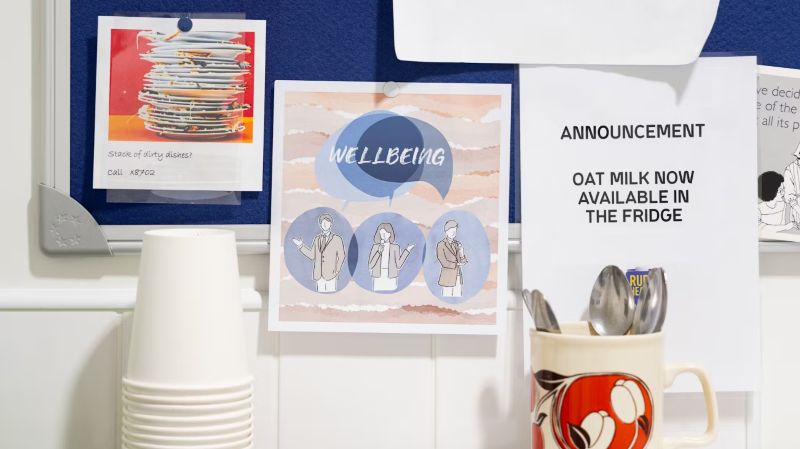
It’s what psychologists call self-continuity, and can improve your health and well-being

By Katherine Ellison
Professional journalist and author
Introduction
When asked why he didn’t begin writing novels until his 30s, the celebrated Czech author Milan Kundera said he didn’t have the requisite experience when he was younger. “This jerk that I was, I wouldn’t like to see him,” he added.
Many of us look back at our former selves and wince to recall our immaturity. We vary quite a lot in the degree to which we feel friendly toward, and connected to, both our former and our future selves. Psychologists call this trait self-continuity, and suggest that it carries enormous weight in determining our long-term well-being.
In recent years, increasing research has shown that a sense of coherence between our past and present selves can bolster mental health and, particularly, emotional resilience. Our connection to our future selves, on the other hand, can sway choices with long-term impact on our future welfare, from watching our diets to saving for retirement.
Self-continuity, says Cornell University gerontologist Corinna Löckenhoff, who researches the trait, gives us “an understanding of where we came from and where we’re going. It gives us direction and purpose and identity.”
Perched in the present
The 19th century psychologist William James compared human experience to being perched on a saddle “from which we look in two directions into time.” But modern researchers have found that the ability — or willingness — to look meaningfully in either direction varies from person to person, just like other psychological traits such as being extroverted or introverted.
“Some people feel a great degree of overlap and continuity with their future selves, and some people don’t even think about that self, and it feels almost like a stranger,” says psychologist Hal Hershfield of the University of California, Los Angeles.
Most studies of self-continuity look to the future, not the past. Researchers typically measure future self-continuity by asking people how similar they feel to an imagined future self. In a 2009 study of 164 people, for example, Hershfield and his team employed a series of Venn diagrams, with two circles overlapping to various degrees. Participants were asked to pick the circle pair best describing how alike and connected they felt to themselves 10 years in the future. People’s responses ranged from almost no overlap to almost complete overlap.
The differences between people depend on a hodgepodge of factors, in addition to basic influences of nature and nurture. Studies have reported that older people, whose expected time horizons are shorter, tend to have a greater sense of self-continuity, as do members of East Asian cultures, which, as some scholars speculate, tend to have a more holistic, connected world view. But researchers have found that people struggling with depression, poverty and childhood trauma tend to feel less connected to their future selves.

Morning Guy vs. Night Guy
The degree of coherence we feel with ourselves over time can support or sabotage us. People with a sturdier connection with their future selves may be more likely to pay short-term costs for future benefits, and vice versa.
The comedian Jerry Seinfeld illustrates the conflict in his riff about how Morning Guy always suffers for the carpe-diem antics of Night Guy: “You get up in the morning, your alarm, you’re exhausted and groggy,” he says. “Oh, I hate that Night Guy! See, Night Guy always screws Morning Guy. …”
The same tension is evident in the broader and more serious failure by many Americans to save for retirement. In a 2022 survey of more than 1,100 retirees, 70 percent said they wished they had started saving earlier. Hershfield says this emerging crisis is what drew him to focus his research on self-continuity and its behavioral consequences. He and others have found that people with more self-continuity are more likely to engage in behaviors that deliver future benefits, including not only saving for retirement but also taking better care of their health in the present.
People with stronger self-continuity are also more likely to behave ethically and responsibly, Hershfield’s research suggests. In a 2012 study, he and colleagues measured the self-continuity of 85 Northwestern University students, then followed up with a test to assess their ethical conduct. Only 50 percent of those who scored low in self-continuity showed up for the follow-up, they found, compared with 73 percent of those who scored high. What’s more, of the low scorers who did show up, 77 percent were willing to lie to an anonymous partner to earn more money when tested with a “deception game,” while only 36 percent of the high scorers would do so.
A stronger sense of connection with one’s future self may also push people toward environmentally responsible behavior. In a 2022 study, researchers recruited 175 undergraduate students at an unnamed US public university, randomly assigning them into three groups: one that was encouraged to visualize themselves at age 60, and the others told to visualize themselves, or another person, at the present time. Afterwards, all of the students played a game where they could take simulated fish from a pool.
The students who focused on their future selves limited the number of fish they took each round to conserve the pool of fish longer, the experiment revealed, while those who focused on the present were more likely to quickly exhaust the pool.
Write Yourself a Letter, Then Write Back
For more than a decade, scientists have searched for ways to manipulate self-continuity in study participants to try to get them to behave more prudently. They have reported success with a variety of approaches, including having people interact with a computer-generated older version of themselves, sometimes with the help of virtual-reality glasses.
Most recently, a new program called Future You, developed at the Massachusetts Institute of Technology, offers young people a chance to chat with an online, AI-generated simulation of themselves at age 60. A recent study of 344 participants found that users who interacted with their future selves reported “increased future self-continuity” and, perhaps as a consequence, significantly less anxiety, compared with those who did not.
Future You is a high-tech version of a technique long practiced by high school teachers and counselors who encourage students to write letters to their future selves, as if writing to a pen pal. In a pilot study of high school students in Japan, social psychologist Anne E. Wilson, at Wilfrid Laurier University in Ontario, took the exercise one step further. She and her colleague Yuta Chishima instructed students who had written the letter to their future selves to respond to it as they imagined their future selves might.

Writing a letter back from the future made the students feel more connected to their future selves, the researchers found. A month later, students who had written back from their future self’s perspective reported “more intensive career planning and a greater willingness to study hard at school even when temptations beckon,” compared with students who wrote only the single letter, according to Wilson and Chishima.
To be sure, there are times when a shorter horizon may be useful, researchers from the University of Southampton in the UK note in the 2023 Annual Review of Psychology. For example, too strong a sense of continuity with one’s past self might hamper efforts in the present to abandon “sunk costs” — investments already made in a doomed plan or project — they report.
The same may apply to quitting a bad habit such as drug addiction. “A bad past could be like an anchor for someone,” says Wilson. “Like, ‘If I’ve failed at this in the past, it means I’m going to fail at this in the future.’
“On the other hand,” adds Wilson, “a bad past could be something that we learn from and then figure out different strategies for the future, so we don’t keep making the same mistakes.” Perhaps like Milan Kundera, who so forcefully repudiated the man he was in his 20s, and died at 94 in 2023, after a long and celebrated writing career.

Live or Die? Which ‘Me’ Gets to Choose?
One of the thorniest issues related to self-continuity is how people’s life-or-death views can alter near the end of life.
Minds tend to change under extreme circumstances. When researchers asked healthy people if, hypothetically, they would agree to a harsh course of chemotherapy that would extend their lives by three months, only 10 percent said yes, notes UCLA psychologist Hal Hershfield. But when cancer patients were asked, the rate more than quadrupled.
In recent years, millions of aging Americans have been writing advance directives, with many leaving instructions that they be allowed to die with no interventions if they fall ill after suffering dementia, under the assumption that life wouldn’t be worth living in that case.
But what happens if, like the cancer patients, they change their minds? What if their younger selves had failed to foresee how their older selves might cling to, even enjoy, whatever life was left?
“It begs the question: Who should we trust? Who is the ‘real’ you?” says Hershfield. “The self who came up with the plan or the self who exists at any given moment in time, even if that self is in the throes of dementia?”
— Katherine Ellison
Originally published by Knowable Magazine, 12.11.2024, under the terms of a Creative Commons Attribution-NoDerivatives 4.0 International license.





